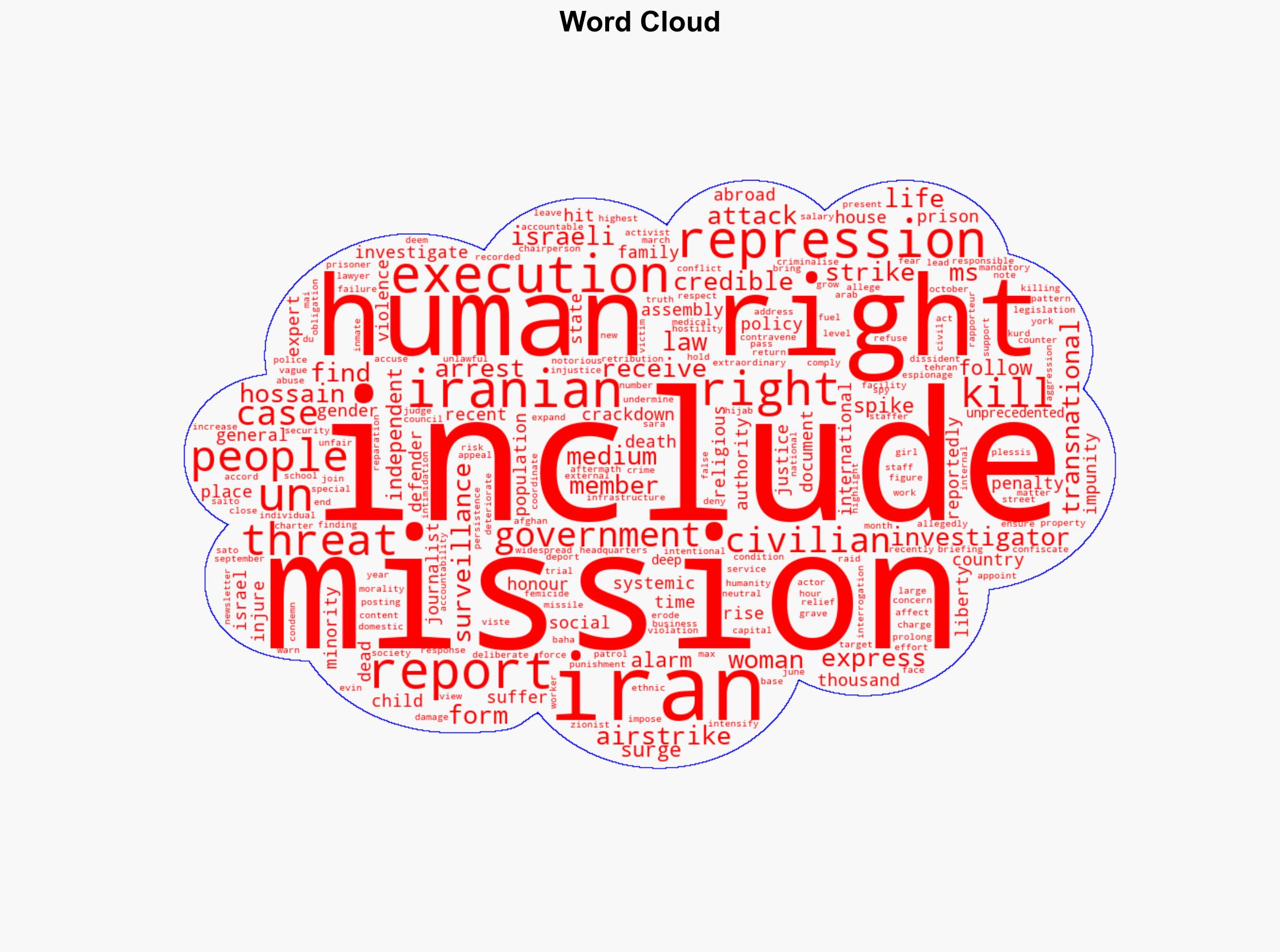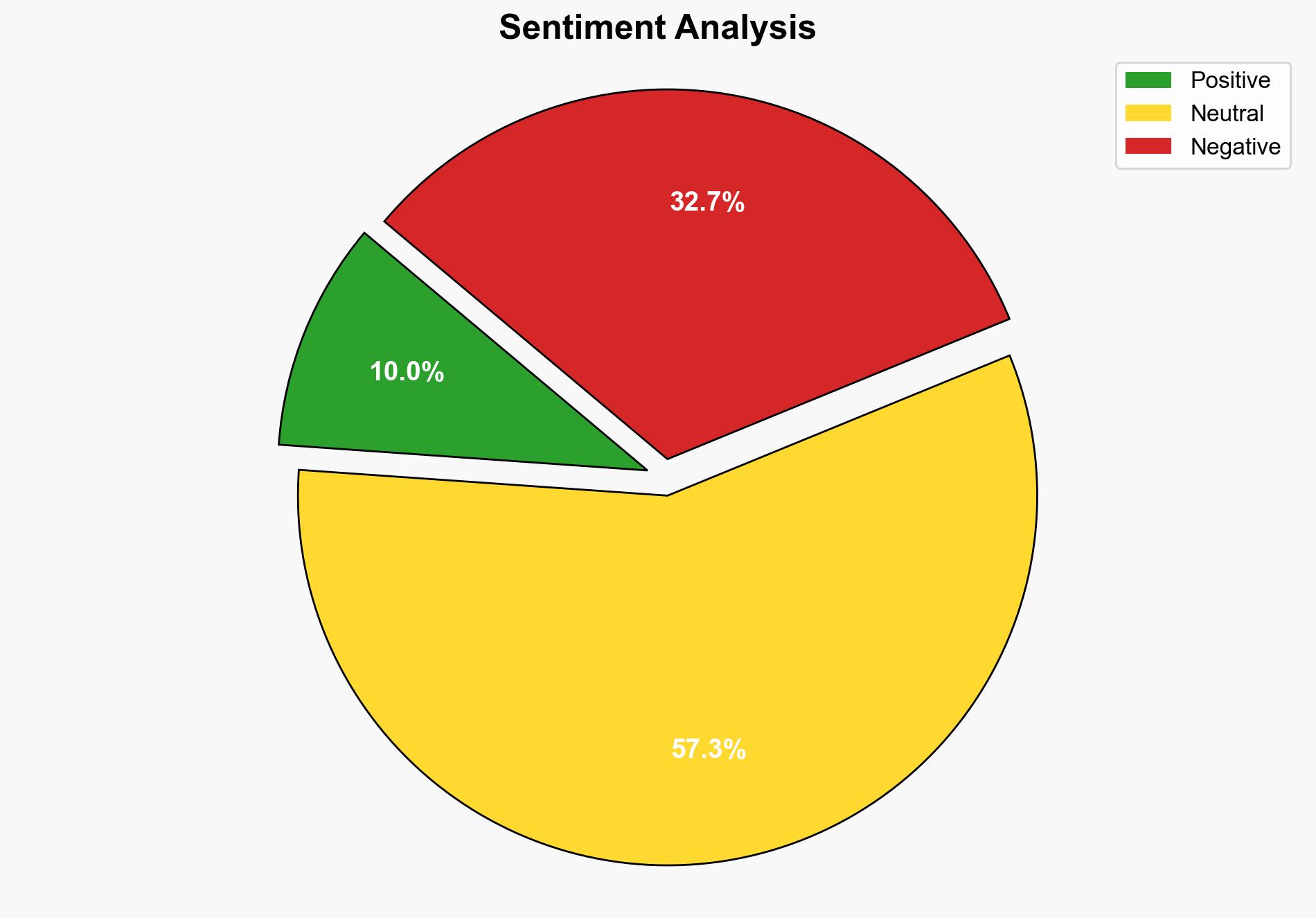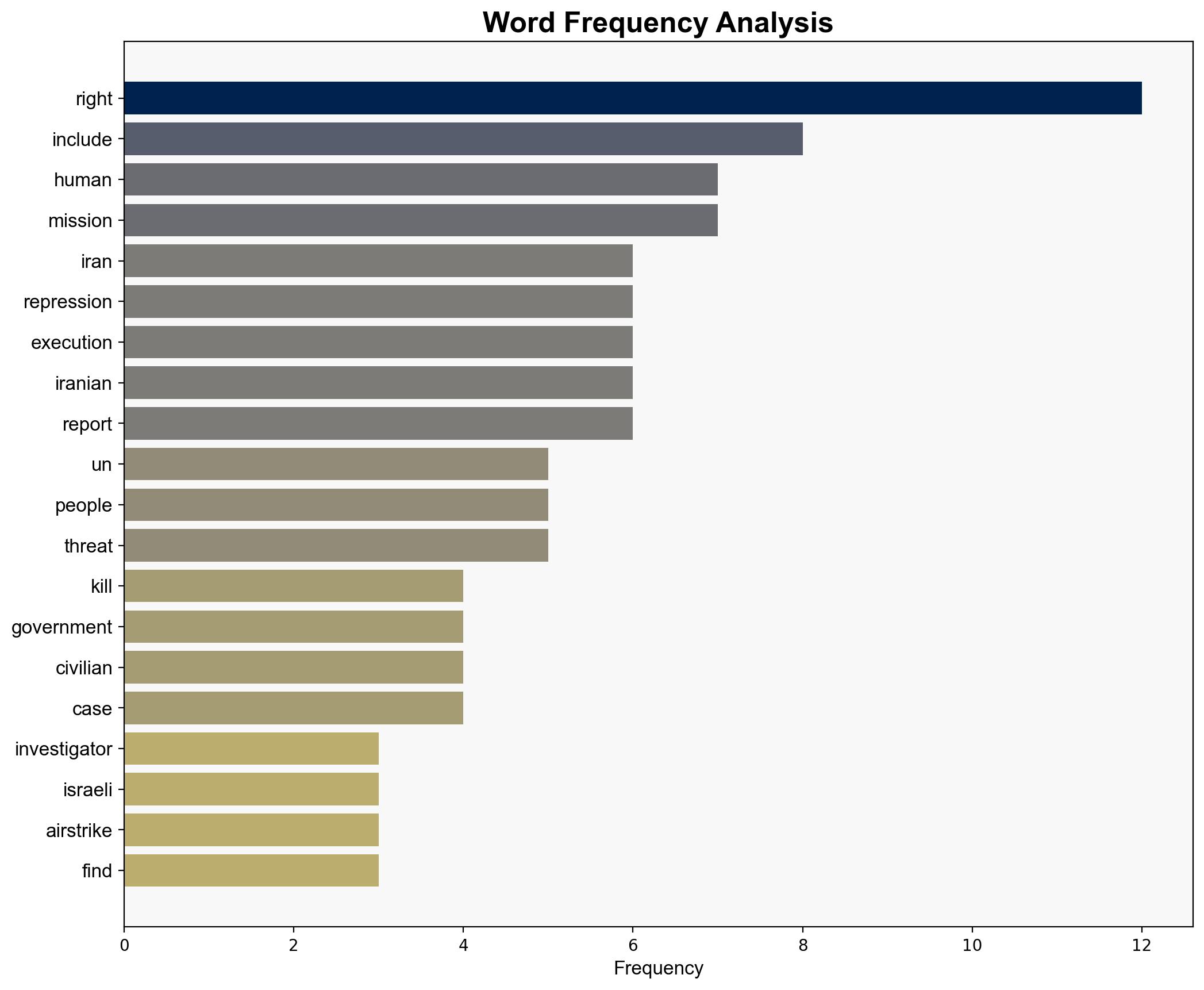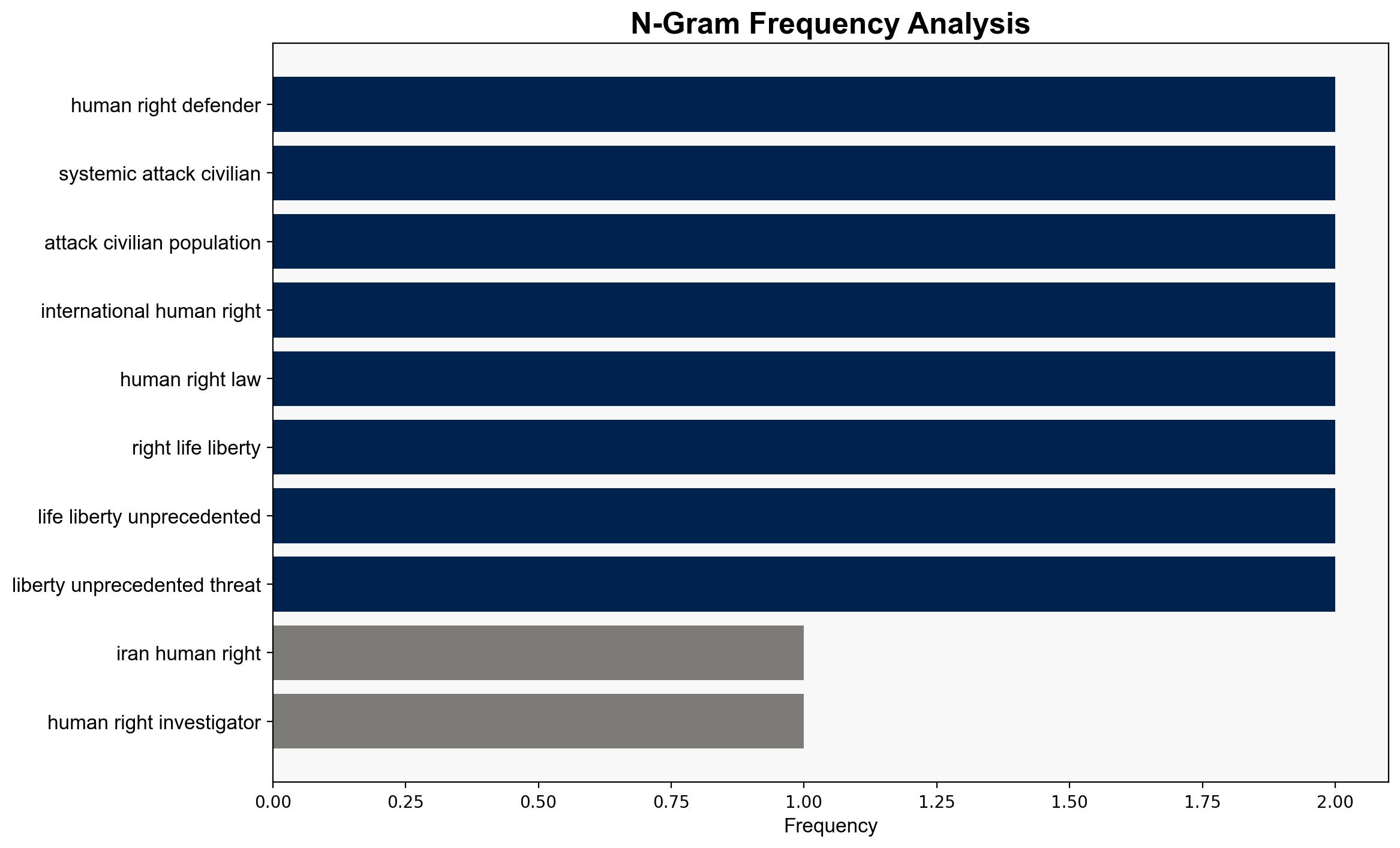Iran Human rights investigators alarmed by ‘surge in repression’ and spike in executions following Israeli airstrikes – Globalsecurity.org
Published on: 2025-11-01
Intelligence Report: Iran Human rights investigators alarmed by ‘surge in repression’ and spike in executions following Israeli airstrikes – Globalsecurity.org
1. BLUF (Bottom Line Up Front)
The most supported hypothesis suggests that the Iranian government’s increased repression and spike in executions are primarily a domestic response to perceived internal threats exacerbated by external pressures, such as Israeli airstrikes. Confidence in this hypothesis is moderate due to potential biases and incomplete data. Recommended actions include diplomatic engagement to address human rights concerns and monitoring potential escalation in regional tensions.
2. Competing Hypotheses
Hypothesis 1: The surge in repression and executions in Iran is a direct response to Israeli airstrikes, aimed at consolidating internal control and deterring perceived external threats.
Hypothesis 2: The increase in repression and executions is primarily driven by internal political dynamics and socio-economic pressures, with Israeli airstrikes serving as a convenient justification for the Iranian government to intensify its crackdown.
3. Key Assumptions and Red Flags
Assumptions:
– Hypothesis 1 assumes a direct causal link between Israeli airstrikes and Iran’s internal crackdown.
– Hypothesis 2 assumes internal factors are the primary drivers of repression, with external events used as justification.
Red Flags:
– Potential bias in reporting from both Iranian and international sources.
– Lack of independent verification of casualty figures and specific incidents.
– Possible exaggeration of threats by the Iranian government to justify actions.
4. Implications and Strategic Risks
– Increased repression could lead to further domestic unrest and international condemnation, potentially destabilizing the region.
– Escalation of military actions between Iran and Israel could draw in other regional actors, increasing geopolitical tensions.
– Economic sanctions and diplomatic isolation may intensify, impacting Iran’s economy and civilian population.
5. Recommendations and Outlook
- Engage in diplomatic dialogue with Iran to address human rights concerns and de-escalate tensions with Israel.
- Monitor regional military activities to anticipate potential escalations.
- Scenario Projections:
- Best Case: Diplomatic interventions lead to a reduction in hostilities and improved human rights conditions.
- Worst Case: Escalation into broader regional conflict, with significant humanitarian and economic impacts.
- Most Likely: Continued repression with intermittent flare-ups of regional tensions.
6. Key Individuals and Entities
– Sara Hossain: Chairperson of the UN fact-finding mission.
– Max du Plessis: Human rights expert involved in the investigation.
7. Thematic Tags
national security threats, human rights, regional conflict, geopolitical tensions





